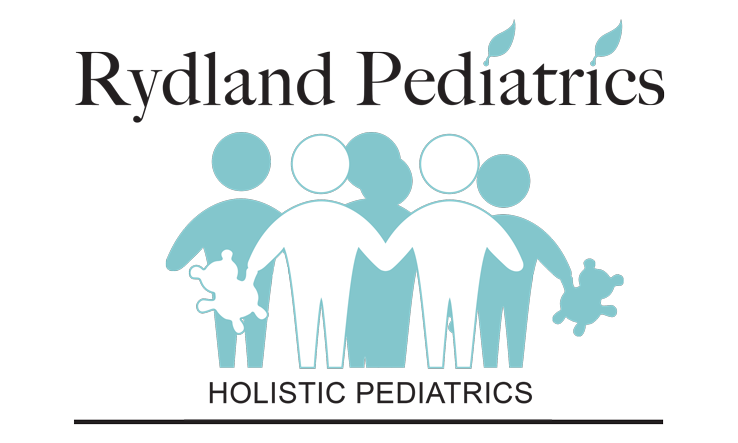Healthful Foods from Which to Freely Choose
- July 11, 2014
- Diet and Nutrition, Health and Wellness
VEGETABLES: These are listed first because it usually is both the most difficult dietary issue, and the most important one in your child’s healthy diet. It is very important to encourage your child to eat a variety of vegetables as often as possible. Whole fresh (or, if necessary, frozen) vegetables are a very important source of fiber to clean the intestines and properly form the stool. In addition, they are a very important source of many of the vitamins, minerals, amino acids (building blocks for protein) and other nutrients needed to keep our bodies healthy. Many of the fats essential to prevent allergies and keep our skin healthy are abundant in vegetables, also.
We have discovered a wealth of “phytochemicals”, or naturally occurring chemical ingredients only found in plant foods, which support and protect our body from disease. The majority of these are found in vegetables and fruits, each known to contain dozens or even hundreds of distinctly different phytochemicals. Small children should optimally eat at least three servings (about the size of their closed fist) every day from the variety of vegetables available. A minimum of two of these servings should be green vegetables. Other color vegetables should also be included in a child’s diet.
Freshly prepared (preferably prepared at the time they are served to prevent deterioration of the nutrients from exposure to the air) vegetable juices are an excellent source of concentrated nutrients, but lack much of the fiber and some other important nutrients of whole foods, and therefore are do not substitute for the whole food. Most children may freely consume vegetable juices.
Due to chemical residues found on the surface of many vegetables and fruits they should be scrubbed or (preferably) peeled prior to use. The outer layer of many fruits and vegetables does contain high concentrations of many nutrients that are important to health and may be eaten if the food is organically grown. Non-organic produce contains unacceptable levels of pesticides and chemicals on the outer covering, necessitating its removal. Sprouted seeds are an excellent concentrated source of nutrients for children and are good additions to salads and stir-fried foods.
FRUITS: Whole fresh fruits are also an important source of vitamins, minerals, fiber and phytochemicals. They are a ready source of simple and complex sugars or carbohydrates necessary for the higher energy requirements of the growing child. Most children will enjoy fruit because of the sweet taste. Fruit juices are an excellent source of quick energy and nutrients when prepared freshly at home but also lack some important nutrients. Children should consume two or more servings daily of whole fruit unless they have sugar intolerance, hypoglycemia or a severe problem with an intestinal yeast infection. Fruit juices should only be consumed in moderation.
The best fruits for children to eat are apples, bananas (except for children with suspected food sensitivities), melons and berries. Unless a child is sensitive to citrus products, they are a good source of Vitamin C and bioflavenoids (so called “Vitamin P”) One daily fruit serving should be from the citrus family which includes orange, grapefruit, lime, lemon, and tomato.
WHOLE GRAINS, NUTS AND SEEDS are sources of a number of essential nutrients, especially fiber, minerals and essential fats, in our diet. Many grains do need to be more thoroughly cooked than fruit and vegetables. They should be processed as little as possible in prepared foods, preferably used whole and not ground into flour or be commercially cracked or split prior to use.
Grinding the grain into flour and the nuts or seeds into nut butters allows their natural oils to be exposed to air (oxygen) which allows them to “oxidize” or become rancid. Rancidity, in addition to causing physical disease in the stomach and intestine (nausea, vomiting, diarrhea, gas, etc.) increases the need for antioxidant vitamins. Regular ingestion will also tend to increase inflammation (allergies, asthma, arthritis and other inflammatory conditions) because of increased levels of inflammatory chemicals, known as prostaglandins, produced in response to the rancid oils.
Prostaglandins are hormones which regulate the balance between inflammatory and anti-inflammatory forces in the body. (Anti-inflammatory medications such as aspirin, acetaminophen, ibuprofen, leukotriene inhibitors, such as Singulaire, and corticosteroids [cortisone] will temporarily decrease inflammation. Therefore the symptoms of any inflammatory condition will often temporarily get better with these medications.) All nuts and seeds should be avoided in children younger than three or four years old because they may choke on pieces of hard foods.
WATER is probably the most overlooked item a child’s diet. Most patients at our center drink less than the recommended amount of water, and/or the wrong type of water. Preferably, the water your child drinks should be from a good clean mineral water source and contained in a glass or hard plastic container. Many of the commercially available water filters (we prefer either reverse osmosis, a good charcoal filter or both) will provide an adequate source of water . Tap water should be avoided whenever possible because it contains many chemicals harmful to our children’s bodies.
It is essential that every child who is not breastfeeding consume at least one half ounce but not more than one ounce of good quality drinking water per pound that he or she weighs (approximately 30 to 60 ml. per kg. body weight) every day to flush out all the toxins from the body and properly lubricate the cells of the body. Sufficient amounts of water will help so many medical conditions that it should always be included in any treatment program.
EGGS are felt by most wellness practitioners to be reasonably healthy foods, not an unhealthy dietary substance as we commonly are taught. Although the yolk of a chicken egg does have a great deal of cholesterol, the white of the egg has high concentrations of lecithin, which neutralizes the effect of the cholesterol in the yolk when consumed together. Eggs are nutrient-rich, making them a good food when consumed in moderate amounts. Brown eggs are better, they should come from chickens that are raised “free range” and organically to avoid excessive pesticides, hormones, antibiotics and chemicals in the eggs. Eggs should be well cooked to avoid bacterial contamination, never eaten raw in any form, due to the possibility of these bacteria. Other animal eggs are also healthy foods. These, including duck and quail eggs, should be prepared with the same cooking instructions as above for chicken eggs.
OILS: butter, NOT margarine, is usually considered a healthy substance by most practitioners for children when consumed in small amounts. It should be organic wherever possible. Other oils, which contain a better balance of fatty acids, such as olive, flax seed, grape seed, evening primrose, walnut, and borage oils are much preferable to use instead of butter or margarine in sauces and dressings that will not be heated.
A good rule of thumb is that any oil that will not quickly spoil when kept at room temperature after being opened is unlikely to have a better health profile (the healthy omega 3 essential fats are very unstable and oxidize or turn rancid rapidly). We prefer to cook foods when necessary with either olive (preferably) or canola oil.
It is extremely important to avoid not only margarine, but also foods that contain “hydrogenated” or “partially hydrogenated” oils whenever possible, especially if these oils are listed as one of the first five or six ingredients on the label of the product. These hydrogenated oils, also called “trans” fats, are artificial fats that cause imbalances in prostaglandins, promoting inflammation (swelling or redness of the body tissues). Many wellness practitioners also associate hydrogenated oils with increased risk of atherosclerosis, high blood pressure and heart disease, which may have its onset in children.
MEATS preferably should be consumed in smaller amounts compared to other dietary substances such as fruit, vegetables, whole grains, nuts and seeds, even if they are taken from organically raised animals. All animals the will concentrate toxic or poisonous chemicals including pesticides, hormones, steroids, antibiotics, and other chemical toxins in the fat found in muscle tissue (from which we get meat). Organically raised animals will naturally have less of these toxic chemicals, but still have some. Fish from either the deeper parts of the ocean or waters known to be less polluted may be consumed in moderate amounts. We feel that it is very difficult, and usually not in the best interest of a child, to totally eliminate meat, but it should be kept to a minimum. Many children, however, have been successfully raised as vegans (complete vegetarians).
“Red meat” or meat which is deeply red in color when uncooked tends to have a higher amount of fat and toxic chemicals. This meat should therefore be consumed in limited amounts. As much visible fat as possible and all skin should be removed prior to eating any meat, fish or poultry. We recommend that all meat always be thoroughly cooked to avoid possible disease from bacterial and parasitic infections. Any pink color in the meat indicates inadequate cooking. We recommend that consumption of pork and shellfish be minimized to maintain good health. They usually have higher concentrations of chemical toxins.
SEASONINGS AND CONDIMENTS should be purchased in the health food section of the grocery store or at a health food store, and labels carefully examined, to avoid the unhealthy substances listed in this chapter. Most seasonings and condiments, except pure spices or those found in the health food section or store will likely contain added chemicals, flavorings, food colors, etc. Naturally occurring seasoning herbs, such as garlic, for example, are presently felt to be beneficial for children’s health. Any salt used in cooking or at the table should preferably be sea salt because it contains a number of essential trace elements (minerals) that are important for proper functioning of the body’s enzyme systems. Do not use any knowingly irradiated foods because radiation destroys or alters many of their healthy substances.
Dr. Eric N. Rydland, graduated from the University of Miami undergraduate and School of Medicine in 1974 and 1978 respectively and completed his pediatric training at the University of Miami Affiliated Hospitals in 1981. He is pediatric board certified by the American Board of Pediatrics. During his nearly 30 years of clinical experience Dr. Rydland has researched and studied the holistic field and alternative treatments. Integrating these holistic treatments with traditional medical care based upon the wisdom only God can give, has given thousands of patients optimal health benefits. This has been achieved through work with many published authors in the alternative field, his experience, and devine wisdom. In addition to the kidsWellness products our site features other products he uses in his clinical practice. Dr. Rydland is a frequent guest on radio and television, speaker at medical seminars and public conferences, and a published author. He is the Founder and Developer of kidsWellnessTM Incorporated (October 1999)
Upcoming Events
- No Events
WHAT OUR PATIENTS ARE SAYING
Testimonial 1
How I wish I weren't writing this and that by some feat of providence we could have brought you with us to Texas – I don’t know if I’ll ever have the confidence and esteem for another pediatrician that I felt when consulting with you about Frank’s health. Thank you so much for being there when we needed you! Again thank you for everything!
Testimonial 2
Sheri, Hollywood
Sheri, Hollywood
Testimonial 3
Elizabeth, Miami Springs
Elizabeth, Miami Springs



